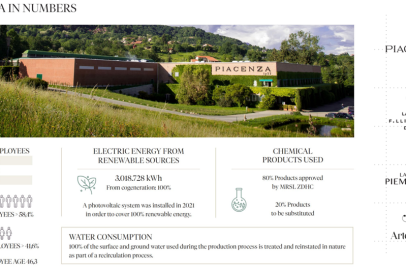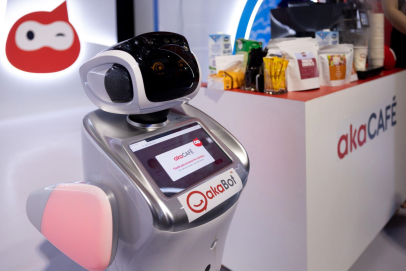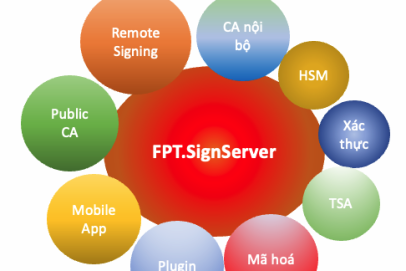Why Intelligent Automation Is The Key To Unlock The Retail Industry?
The retail industry has witnessed significant transformation in recent years due to digital transformation and an accelerating shift to online shopping. Retail businesses that want to succeed in the fast-evolving landscape must renovate their operations to stay ahead of the curve and facilitate growth and innovation. Intelligent Automation that can leverage every stage of the retail development journey is essential to reshape the industry.
Key challenges facing retailers today
Rising customer expectations
Consumers today are more demanding than ever. According to BusinessWire, nearly 90% of customers expect a seamless experience and interactions regardless of touchpoint. Salesforce research reveals that 66% of consumers expect businesses to understand their unique demands and expectations, and 52% anticipate personalized offers. A study by McKinsey also indicates that 71% of customers desire delivered personalized interactions.
Therefore, developing a smooth and personalized experience for customers poses a critical challenge for retailers to address evolving consumer expectations.
Process siloes
Many retail organizations are still struggling with their siloed systems and data since each department in the organization stores data separately, resulting in manual data transfers. A survey by JDA of more than 300 retailers found that only 18% of CEOs report having eliminated operational silos. Those siloed processes can block information flow, slow the adoption of new technologies, limit the ability to create a seamless experience for customers, and make the whole operation exceptionally challenging.
Complicated data processing
The pool of data in the retail industry is massive, including customer data, sales figures, inventory, and pricing information, coming from several sources, such as GPS devices, RFID tags, sensors, and ERP systems. However, since most data is unstructured, capturing insights from them requires more complex algorithms to handle.
Therefore, to gain valuable insights from the data for strategic planning and understanding unique customer demands, retail organizations need sophisticated strategies involving advanced technologies.
Complex demand forecasting
The evolving market alongside the rising needs of customers has facilitated demand forecasting more crucial than ever. The inaccurate demand forecasting can negatively impact numerous processes, from merchandising, and inventory management, to warehousing. Besides, demand forecasting often creates variables that fluctuate from time to time, causing the process to become more complicated.
Intelligent Automation in the retail industry: The Overview
Automation has been a strategic goal in the retail industry over the years, with several organizations investing in such solutions to keep up with the competition and meet the complex demands of consumers.
In terms of the global retail automation market, it is estimated to be valued at around USD 15.23 billion in 2023 and is predicted to have substantial growth in this market, estimating it to reach USD 32.60 billion by 2028, growing at a CAGR of 14.66%. McKinsey indicates that retail businesses can automate around 30% to 40% of retail tasks related to processes such as merchandise management or the supply chain.
Intelligent Automation (IA) combines Artificial Intelligence (AI), Machine Learning (ML), Natural Language Processing (NLP), and Robotic Process Automation (RPA) to streamline retail processes and create end-to-end operations that facilitate a superior shopping experience for customers across various channels.
How Intelligent Automation can be applied in the retail industry?
Demand forecasting
With robust AI algorithms and embedded Machine Learning (ML), Intelligent Automation can leverage accurate demand forecasting, yielding actionable insights and decision-making for retailers. Capgemini’s study reveals that adopting automation in demand forecasting can remarkably increase forecast accuracy by up to 30%.
- Intelligent Document Processing (IDP) to gather, analyze, and leverage extensive customer data from various sources
- AI and ML to identify demand patterns from current and historical customer data and economic and demographic data. This allows for predicting demand for products more accurately and ensuring the right product quantities are delivered to the right points
- RPA to send key information based on analysis to businesses for handling supply chain disruptions and better demand planning
Accounts payable
Intelligent Automation serves as the key to automating the accounts payable process, facilitating seamless data sharing across the operation.
- IDP to capture invoices, verify invoices against corresponding purchase orders and delivery receipts, extract relevant data, and enter it into the centralized database, avoiding manual data entry and the risk of human errors prevalent
- RPA to automatically send invoices to relevant personnel or departments for approval
- AI/ML to keep track of payment data, invoices, and payment status to optimize cash flow
Inventory management
Intelligent Automation allows retailers to manage inventory in real time, reduce stockouts, and waste reduction, and facilitate critical decisions on time. McKinsey’s study indicates that adopting automation in inventory management can contribute to inventory level reduction by up to 30%, resulting in enhanced productivity and cost savings.
- AI/ML to analyze historical sales data and real-time data on inventory, movement, and usage to generate insights on inventory levels and avoid stockouts and overstocking
- RPA to order the right amount of items, meeting inventory demand fulfillment
- RPA to automatically generate alerts, and reorder supplies when stock is low
Invoice processing
Manual invoice processing is time-consuming and costly. An average company takes about 25 days and costs around 10$ to manually process a single invoice from receipt to payment.
Intelligent Automation with advanced capabilities can leverage invoice processing, reducing processing times and errors, and creating opportunities for employees to focus on higher-value work.
- IDP to automatically scan when the invoices arrive
- IDP to enter the extracted invoice data into the centralized database in the desired format
- AI/ML to validate invoices against purchase orders and alert the person responsible for approval & payment in case of a difference
Customer service
With Intelligent Automation, retailers can provide superior and personalized customer service with Generative AI chatbots, and unlock new growth opportunities.
- Understand the meaning and context of messages with Natural Language Understanding
- Create appropriate and contextually relevant textual responses in natural language with customers
- AI/ML to offer personalized recommendations to customers based on their browsing and purchasing history with AI/ML
- Provide 24/7 customer service
Customer insights
Intelligent Automation adoption can help retailers have a more complete picture of customers, from their intentions, habits, and needs, to behaviors. Retailers can then make use of the data to curate experiences that are personalized and valuable to the customers.
- RPA to collect and extract relevant customer data from various sources such as transaction history, browsing history, and every touch point
- AI/ML to analyze the customer data and create a comprehensive customer persona
- AI to generate recommendations tailored to customers’ demands
Benefits of Intelligent Automation in the retail industry
Intelligent Automation is providing notable advantages to organizations operating in the retail industry. IBM’s research indicates that IA has already been adopted by 2 in 5 retailers, and the figure is anticipated to double in the next 3 years.
Those retailers that are making efforts to unlock the true potential of Intelligent Automation can enjoy numerous benefits:
Achieve higher accuracy
Papar-based processes are more prone to errors than ever. However, data quality can be improved and errors eliminated by opting for Intelligent Automation. A study by Ardent Partners shows that automating invoice processing can reduce 50% of errors.
Reduce cost
Intelligent Automation can eliminate time-consuming, monotonous, and repetitive retail tasks that often waste a lot of time and unnecessary resources to perform. For example, optimizing supply chain management can help retailers cut down expenses on warehouse space or transportation costs. According to a study by PwC, adopting Intelligent Automation can help retailers save up to 40%.
Enhance productivity and efficiency
Traditional methods often require employees to manually process large volumes of paper-based documents, classify invoices, and other time-consuming and repetitive tasks, resulting in potential errors and the squandering of valuable time and resources.
Retailers can achieve operational excellence with Intelligent Automation by significantly improving process speed, freeing up employees to focus on more valuable jobs, and accelerating end-to-end processes. A report by IBM reveals that Intelligent Automation can boost operational efficiency by 79%.
Improve customer experience and satisfaction
Intelligent Automation solutions can enhance the customer experience in numerous ways, including through automated customer service, personalized campaigns, or rapid order fulfillment. Particularly, AI-enabled virtual assistants can be used to provide customers with personalized product recommendations and advice, thereby further enhancing their shopping decisions. Also, Machine Learning and Natural Language Process algorithms allow retailers to have a better outlook on customers to improve their products and services accordingly. According to IBM, utilizing Intelligent Automation can increase customer experience by 66%.
Increase sales
Intelligent Automation in the retail industry helps promote sales in a proactive approach. By unlocking opportunities from customer data and generating personalized offers for customers, retailers are likely to increase sales remarkably. A survey by Forrester shows that IA can help retailers improve sales by up to 7%.
Prevent fraud
The National Retail Federation reports that fraud is the top issue faced by the retail industry.
Intelligent Automation is effective in identifying fraudulent activities and preventing fraud in its tracks with the support of key technologies such as Machine Learning and Deep Learning. The solutions can actively perform analytics and calculate risk in real-time, prompt additional identification verification, and flag any suspicious payments and transactions, thus ensuring the overall level of security for the organizations.
The future of Intelligent Automation in the retail industry
It is undeniable that Intelligent Automation is poised to have a profound impact on the retail industry in the coming years.
Artificial Intelligence and RPA, with the advancement in Generative AI will be the most prominent retail technology trends. From predicting market trends, and customer preferences to facilitating end-to-end operations, these cutting-edge technologies allow retailers to seize the opportunities and stay relevant in the landscape. Besides, Generative AI is predicted to take personalization in the retail industry to new heights by providing tailor-made content and product recommendations, further increasing shopping experiences for customers in the digital world.
The future is unforeseen, there will be room for potential possibilities and emerging technology advancement across the industry, as we transition from 2023 to 2024 and beyond.
Exclusive article by FPT IS Technology Expert
FPT Information System Company.















